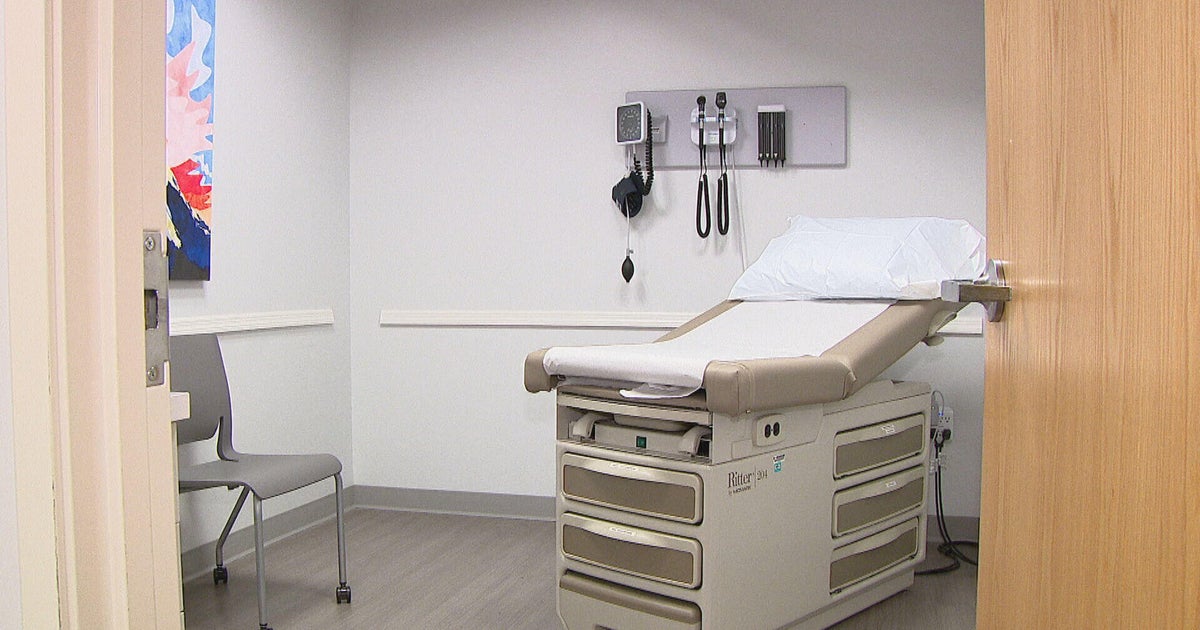Changes Coming To Texas Health Care
AUSTIN (AP) — Gov. Rick Perry has promised to fight tooth and nail against implementing the Affordable Care Act. But that doesn't mean big changes aren't coming to Texas health care, and it won't save lawmakers from facing tough spending decisions.
Perry has refused to expand Medicaid, the health care program for the poor. And last week he announced Texas will not set up a federally-mandated health care exchange, an online system that allows people to find affordable insurance and lets them know if they are eligible for discounts or subsidies.
Texas has about 6 million uninsured residents, which comes out to nearly a quarter of its population — higher than any other state. Both Republicans and Democrats agree that's too many, but they disagree on how to get that number down.
In a July letter to Health and Human Services Secretary Kathleen Sebelius, Perry said he opposed the Affordable Care Act because it would "make Texas an appendage of the federal government when it comes to health care." He also vehemently opposes expanding the number of people eligible for Medicaid — to reduce the number of uninsured — because it would eventually require Texas to spend more money on the program.
Medicaid is the fastest growing segment of the Texas budget, and Perry has warned it could bankrupt the state.
Texas already faces a $4.7 billion budget deficit after the Legislature underfunded Medicaid last year. When they meet again in January, lawmakers will need to pass a supplemental spending bill to cover that shortfall by March, or else the program will run out of money.
Signs of conflict are already showing. For the 2014-205 budget cycle, the Texas Health and Human Services Commission that runs the Medicaid program has asked the Legislature for an additional $6.7 billion. Republican leaders, meanwhile, have already pledged to increase the entire state budget by only $7 billion.
If they plan to maintain their spending cap, they will need to pare down spending on health care.
Perry and his allies in the Legislature have long called for improvements in how state-funded health care is provided. Perry has asked the federal government to simply give Texas all of the money it receives now without the strings attached and let Texas put together its own program for the poor and disabled.
The new Texas commissioner for health and human services, Dr. Kyle Janek, said he feels certain Texas could build a better program using the same amount of money.
"We could design a system that would be a Texas solution, and that solution may involve covering people who are currently not covered; though that would be with existing funds," Janek said. He said the state would like to experiment with a tiered co-payment system and varying levels of coverage.
Federal officials and advocates for the poor, though, argue that federal rules are necessary to guarantee that the needy will receive minimum level of assistance that is not subject to the political moods in state capitols. Janek acknowledges that such a block-grant was unlikely anytime soon.
But the federal government does want to encourage states to experiment and find better ways to provide care for the needy, so it grants limited waivers. One is for the Women's Health Program, which provides preventive health care and contraception to women who would not normally qualify for Medicaid. The program saved money by expanding health care coverage to non-pregnant poor women to prevent unplanned pregnancies that Medicaid would have to pay for if not prevented.
The Legislature passed an omnibus bill last year that prompted officials to apply for what is called a transformation waiver. The new state law allows doctors, clinics and hospitals to work together more closely and for state officials to pay hospitals more for providing better, more efficient care. Federal officials granted a waiver allowing the experiment.
The state is currently supervising the creation of Regional Healthcare Partnerships across the state that will allow for coordinated care as well as improving access and quality. These partnerships will also provide greater compensation to hospitals that develop innovative ways that lower costs and improve treatment.
The biggest changes are coming to the Rio Grande Valley, where the state is implementing managed care for Medicaid. That means people in the program must now sign up with private companies who will manage their benefits rather than state officials.
A key part of implementing managed care was overhauling how the state reimburses hospitals for the indigent. The new waiver makes sure that hospitals continue to receive funding for treating indigent, single adults who do not qualify for Medicaid in Texas.
Perry's refusal to expand Medicaid presents an obstacle to achieving the Affordable Care Act's goal of 98 percent of Texans enrolled in some kind of health care program, but the transformation waiver will help provide the indigent with the care they need.
And while Perry has refused a state-run health care exchange for Texans, that decision will not keep millions of Texans of signing up for insurance. Janek said his commission is still waiting for Washington to publish all the new rules under the Affordable Care Act, but one thing he says is certain.
"It is the law of the land and we have to deal with it," Janek said.
(© Copyright 2012 The Associated Press. All Rights Reserved. This material may not be published, broadcast, rewritten or redistributed.)
Also Check Out:
- 'Cops & Robbers' Game Goes Over Badly With Cops
- Pet Medicine Becoming Human Business
- Massive Explosion & Chemical Fire At Garland Plant
- Court Cries After Girl's Letter To Drunk Driver
- Military Veterans Killed In Midland Train Wreck







